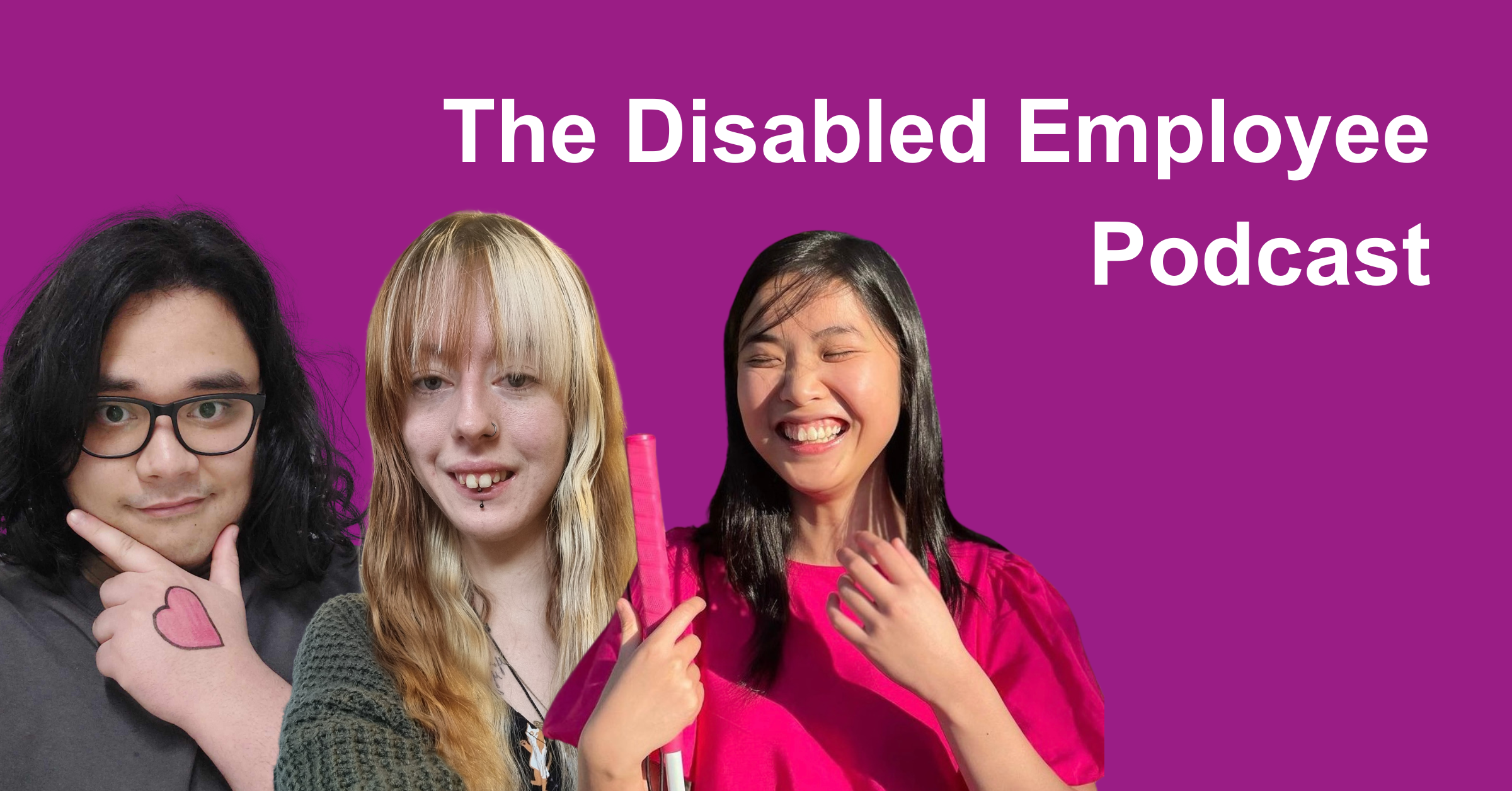From a lunch time chat to winning the national award for disability leadership, Thanh, Dureece, Britt, the hosts of the Disabled Employee Podcast, tell us about the power of being in control of our own narratives and the impact of winning this award for themselves and community.
“Welcome back to the lunch time radio show”
By all accounts the Disabled Employee podcast started as an inside joke about the often-deep conversations that happened in the lunch breaks of Youth Council meetings.
Thanh says that when she was finally approached by the Community Impact Team about making the inside joke a reality that they thought “Is this even allowed?” but she soon dispelled her worries and focused on assembling their very own Avengers with Dureece and Britt.
Finding a topic came naturally to the three hosts, interweaving their work into the existing DREAM Employment Network – but Britt said it best “We’re all disabled employees let’s just talk about it.”
This ethos of straightforwardness and having ‘real conversations’ was a guiding light throughout the series. Dureece said that often people, including himself, can feel disillusioned when podcasts are too formal, or too jargony, especially for a topic that can be heavy.
He said he wanted those listening to feel just another part of their lunch time chat “A bunch of friends hanging out – but talking about something important – is a part of what makes it work”
This focused but conversational style allowed the hosts to guide us seamlessly through the employment lifecycle. Thanh, Dureece and Britt talked about their experiences and stories of disability and employment, from getting the interview to asking for reasonable adjustments, dealing with discrimination in the workplace, and what to do when the contract ends.
Britt said that it is vital disabled young people are in charge of their own narratives “Our bodies and minds don’t always work properly, but our stories are our stories. We should be the ones to tell them”
"Our bodies and minds don’t always work properly, but our stories are our stories. We should be the ones to tell them"
The hosts say that even the story telling between them helped to improve their own skills in advocacy and gaining knowledge on what they could ask for as accommodations in the workplace.
Britt said “Our goal going into it was to help one person – we achieved that because we all helped each other”, Thanh agreed saying they learnt so much about what was possible with Job Access.
The power of sharing experiences even just with peers is so evident throughout the series and these light bulb moments for the hosts are great to witness a listener.
The hosts reflected on what it means to be winners of the National Award for Disability Leadership – Social Impact. Thanh said it is so important for young people to see themselves represented as powerful advocates and agents for change.
“We expect disability advocates to be people who are notable, to know what they are doing, and young people, by nature, are expected to not know what they are doing, and therefore can’t be advocates. But the truth is anyone can be an advocate, you just have to care.”
Dureece said that winning this award is helping him to face self-doubt “I’m finally beginning to stop being my worst critic”.
He hopes that that this representation can be impactful for the wider community of disabled young people “For someone who is working on a similar project – to see something like The Disabled Employee podcast be published, get recognised, win an award – they can think ‘I can do that too’”.
All hosts are excited for what their podcasting and advocacy future holds, and at CYDA we are so proud of what they’ve achieved, and we can’t wait to see what is next!

About the author:
Rosie Putland (she/her) is a proudly Disabled Commications Officer at CYDA and is based in lutruwita/Tasmania. She is a social entrepreneur, on the board for the Regional Autistic Engagement Network (RAEN), and the founder of the Tasmanian Digital Accessibility Community. Rosie is known for her advocacy, storytelling, and her dedication to community.


